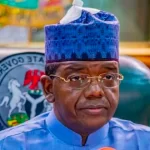By Senator Iroegbu
I am taken aback by President Bola Ahmed Tinubu’s recent decision to eliminate fuel subsidies without having established the essential teams that are integral to any administration’s functioning.
The absence of key teams, such as Communications, Economics, Security, and Administrative/Secretarial, raises concerns about the government’s preparedness to address critical issues. I will delve into the significance of these teams and the urgency for their prompt establishment.
The three most vital teams in any administration are as follow:
Communications Team: A well-functioning communications team is crucial for effective governance. It ensures transparent and timely dissemination of information to the public, facilitates public engagement, and helps shape the narrative around government policies and decisions.
Economic Team: An economic team plays a pivotal role in formulating and implementing sound economic policies. It guides the government on matters related to fiscal management, monetary policy, investment strategies, and economic growth. Their expertise is vital in navigating complex economic challenges and ensuring sustainable development.
Security Team: The security team is responsible for safeguarding the nation’s security interests, both internally and externally. They devise strategies to counter security threats, maintain law and order, protect citizens, and enhance national defense capabilities. Their expertise is crucial in ensuring the safety and well-being of the nation and its people. More importantly, they also weigh the security implications of any government decision such as this fuel subsidy removal, and advice on when and how to carry it out without any security implications.
Additionally, an administrative/secretarial team, consisting of the Secretary to the Government, Chief of Staff, and Principal Secretaries, serves as the backbone of the administration. They handle administrative tasks, coordinate the flow of information, and facilitate efficient decision-making.
The current situation in Nigeria is critical, and the absence of these teams can have far-reaching implications. Another government operated through trial and error would be detrimental to the nation’s progress and stability.
It is important to acknowledge that the President may have been swept up in the euphoria of fulfilling a lifetime ambition. However, the time for action has come. This is the President’s second opportunity to rectify the situation, and there is no time to spare. Valuable lessons could have been learned from past experiences, such as the six-month delay it took his predecessor PMB in appointing crucial team members in his now rested administration.
Time is of the essence, and proactive steps need to be taken. As the saying goes, “A stitch in time saves nine.” Nigeria needs a government that is well-prepared and equipped to address pressing issues efficiently and effectively.
We remain hopeful that the President recognizes the urgency of the situation and swiftly establishes the necessary teams to guide Nigeria toward a prosperous future. The dice is cast!










